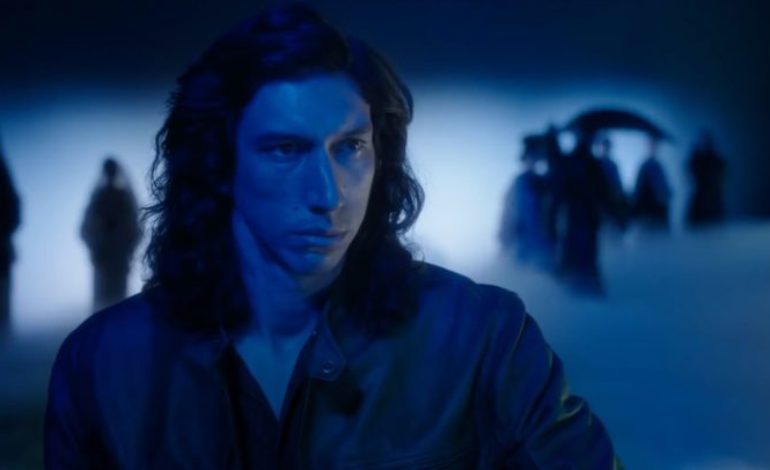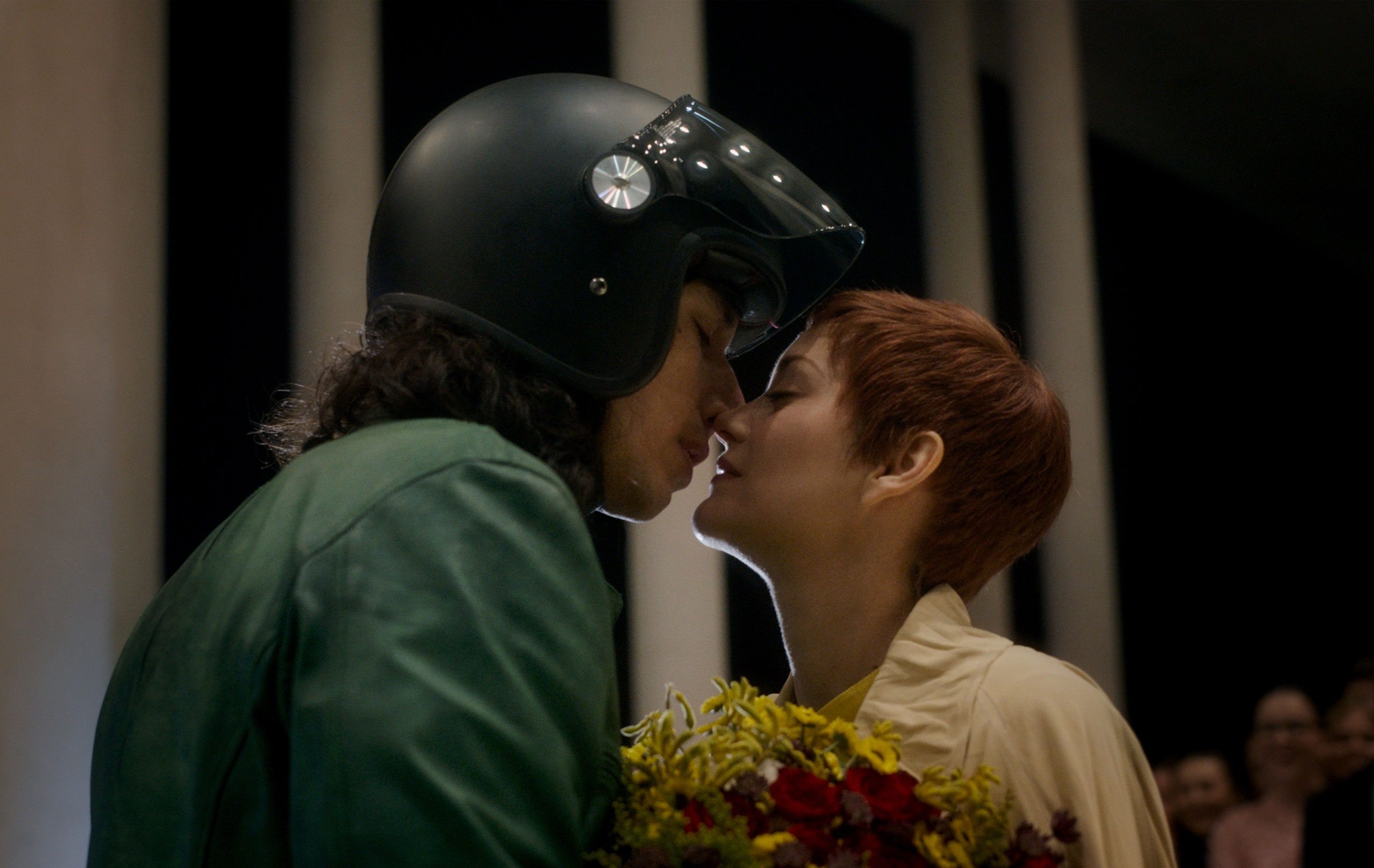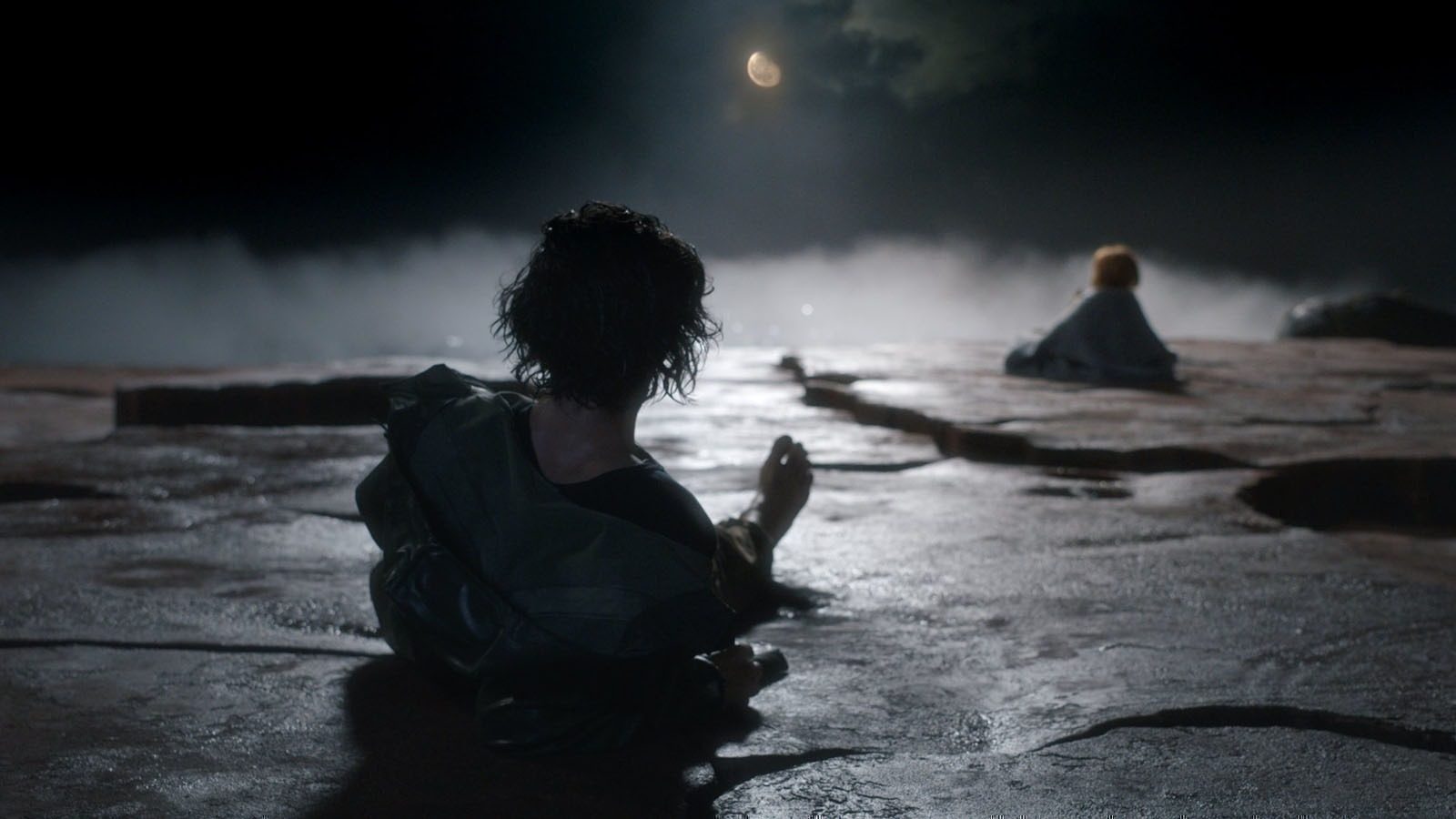

Annette is a lot like the opera. It’s pretty long, the story is confusing at times, and there is A LOT of singing. The majority of the film is sung, not spoken. Like the opera, most viewers might be put off by these aspects of the film. However, if the viewer can look past the unconventional creative choices, a tragic and deeply emotional story can be found in what is, essentially, an opera in the form of a movie.
Annette is a romantic drama which follows Henry McHenry (Adam Driver), an irreverent stand-up comedian, and Ann (Marion Cotillard), a famous opera singer. The film revolves around the relationship between Henry, Ann, and the family that they create with the birth of their baby girl, Annette (Devyn McDowell). Annette lacks a traditional story structure which works to its benefit and detriment. The absence of a conventional plot may put off some viewers, but it also helps the audience focus on the emotions being displayed.


There is not much major conflict for the first half of the film. The first half mainly focuses on how much Henry loves Ann and how Ann’s love for Henry seems illogical to the average onlooker. It’s a sweet first half which displays true love, but also one without much real direction. The second half of the film increases the conflict significantly. It feels like there is direction along with the display of strong emotions. If the first half is the joyous life and everlasting bliss of Henry’s perfect life, then the second half is the tragic and depressing route it takes after Henry’s actions.
Contrary to what should be said about most movies, the story is not what is important about Annette. What really makes Annette shine is everyone’s performance. Like an actual play, musical, or opera, it is the actors that stand out and leave the audience in awe. As mentioned earlier, the entire film is sung. Annette is almost exclusively a musical save a few spoken pieces of dialogue. There are points in the film where large crowds of people sing in conjunction, and it is truly amazing. Large choirs sing in response to what the main characters do throughout the film.
Said performance is shown in a manner which is very reminiscent of a stage. Most scenes are shot in a way which makes the viewer focus on the actors more than the environment, and the environments that are shown feel enclosed and almost artificial. There is rarely a scene where a character does not take up the majority of the shot. This helps the audience focus on the characters, their struggles, and their reactions to said struggles. It also makes the film feel more like a stage play by eliminating the distraction of elaborate sets or the use of heavy CGI. Although this choice won’t please everyone, it definitely makes the film feel more like one is in a theater watching a play.


Like any good musical, the main characters steal the show. Two characters in particular narrowly outshine the rest of the cast. The first is The Accompanist (Simon Helberg), the nameless accompanist to Ann in her opera. Most viewers will recognize Helberg as Howard Wolowitz from The Big Bang Theory. Although it is a stark change, Helberg makes a graceful transition from goofy sitcom actor to marvelous dramatic singer. Admittedly, Helberg’s voice is a little difficult to disconnect from his The Big Bang Theory character, but the performance he gives is so good that the viewer will forget about goofy old Howard Wolowitz for the duration of the film.
Helberg’s performance is amazing, but Driver’s performance is simply phenomenal. Just like The Accompanist, Henry will also be widely recognized by fans watching Annette. Henry is played by none other than Adam Driver. Most will recognize Driver from his performance as Kylo Ren in the Star Wars sequel trilogy, but his performance in other films such as BlacKkKlansman, Logan Lucky, and Annette, prevent him from being typecast as the temperamental antagonist of the Star Wars sequel trilogy. Driver’s performance is spectacular. This particular viewer was very enthralled by his character and the range that Driver was able to achieve with Henrey McHenry. Driver makes the audience love and hate the tragic character of Henry with ease. Driver’s performance is the highlight of Annette and is the only reason one needs to watch Annette. Who knew Adam Driver could sing?
Rating: 4/5
Annette is not for everyone. It takes about thirty minutes to realize that everyone in the film sings for the entirety of the movie, unlike traditional musicals. However, if the viewer chooses to stick around after said realization, they will be in for a modern-day tragic opera which is pleasant to watch and listen to. Once you accept that Annette is more akin to a Shakespearean tragedy than a modern Hollywood movie, then the experience should be a very powerful one.
